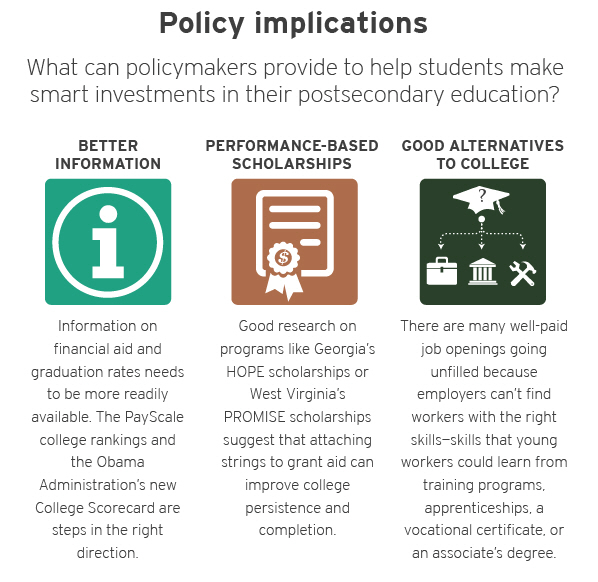Is a college degree worth it? Not for everyone, according to our newly-released Center on Children and Families policy brief. The value of a college degree can vary dramatically, depending on factors such as field of study, type of college, graduation rate and future occupation. Here’s the last in a three-part blog post series, where we take a closer look at findings from the policy brief. (Read the first part and second part here.)
Even though we often talk about college as a monolith, the truth is that not all college degrees are created equal. There is huge variation in the return to a bachelor’s degree, depending on choice of major and occupation; school type and selectivity level; and likelihood of graduating. All of this suggests that it is a mistake to unilaterally tell young Americans that going to college—any college—is the best decision they can make. If they choose wisely and attend a school with high graduation rates, generous financial aid, and high expected earnings, they can greatly improve their lifetime prospects. The information needed to make a wise decision, however, can be difficult to find and hard to interpret.
We lay out a three-pronged approach that would help every young person make a smart investment in their future: better information, performance-based scholarships, and better alternatives to a traditional four-year degree.

The Brookings Institution is committed to quality, independence, and impact.
We are supported by a diverse array of funders. In line with our values and policies, each Brookings publication represents the sole views of its author(s).



Commentary
Helping Young People Make Better Higher Education Choices
May 10, 2013